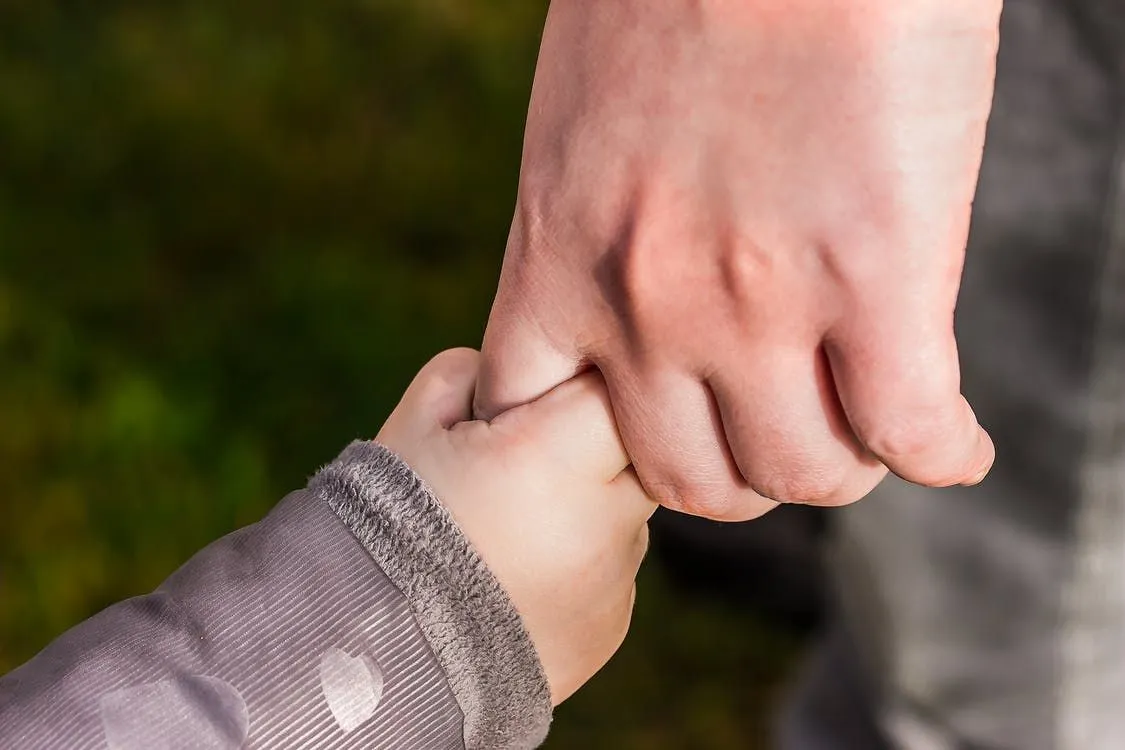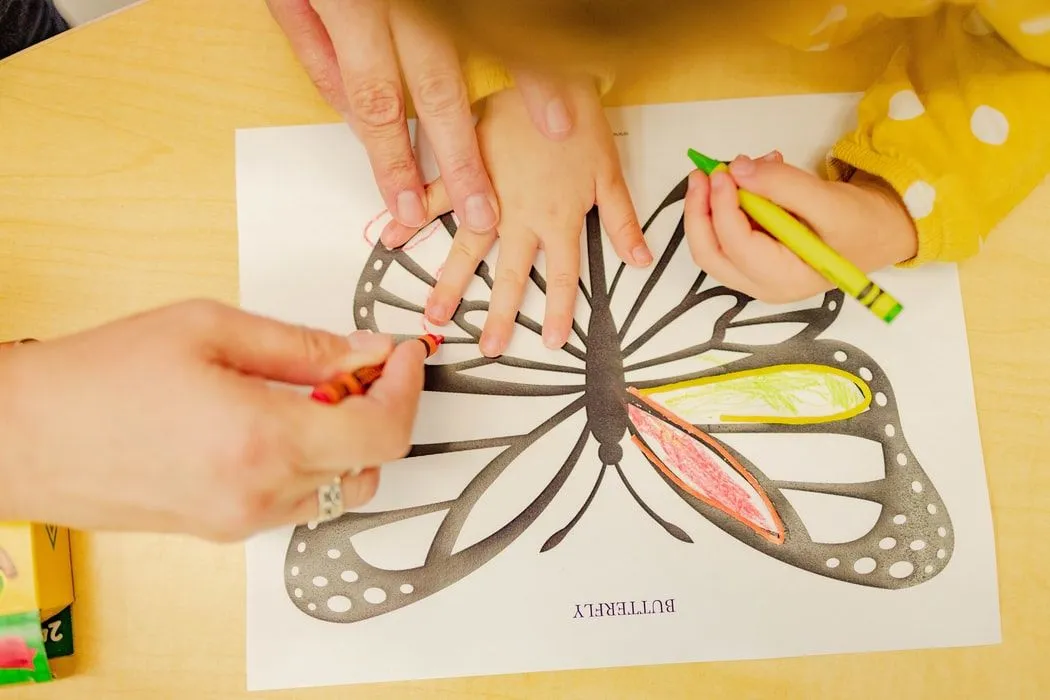FOR ALL AGES
Nail-biting is one of the most common habits among toddlers.
Whilst thumb sucking, teeth grinding, hair twisting, and nose picking are all common quirks and nervous habits, nail-biting is the habit most likely to continue past the toddler years. There are lots of different ways to help children to stop biting their nails, but the key is not to rush them, and to make sure they know you are doing it together, they shouldn't feel embarrassed or ashamed, it just one of those things!
To read more about parenting toddlers, why not check out toddler formula and toddler growth spurts?
So why is your toddler biting their nails? Sometimes nail biting can appear when your child starts experiencing worry or anxiety for the first time. Another reason is curiosity, if they have a hangnail they might wonder what will happen if they have a little nibble and before you know it a habit has formed. Sometimes they can simply be copying someone else they've seen, are there any other nail biters in the family? This could be an opportunity for everyone to try and stop biting their nails together.
Nail-biting can be a way to relieve tension and cope with strong feelings. If your child has recently experienced a change, maybe a new preschool, moving house, even a new sibling coming along, all of these things can trigger a new habit, in this case, nail-biting.
Nail-biting can also be comforting, in the same way that thumb sucking or hair twisting can be, it might help them to relax or fall asleep.

When it comes to a 2-year-old biting nails, sometimes the best option is to simply carry on as normal, and hopefully, this little habit will go away on its own. If not, then we have some other methods that may work for you below.
You could start by telling your little one about hygiene and some (not too scary!) reasons why it's not nice to put your fingers in your mouth and that we all have dirt and bacteria under our nails.
Keep their nails trimmed and smooth, so there won't be much there for them to bite. Also make sure to gently file down any rough edges, as these can be very tempting to chew on!
Come up with a secret signal or code, so that when you spot your child nail-biting you can gently remind them to stop. This is great for when you need to discreetly remind them, without drawing attention to it or embarrassing them.
Use a fun reward system. You could give your little one a sticker for every half-day they manage without nail-biting, then once they get say, four stickers, they get to choose a treat. Don't forget to heap on the praise, even if they don't quite manage it, remind them that you are proud of them for trying.
Try offering your child a swap so they've got something else to keep their hands busy. Silly putty, a soft toy, a funny or cute stress ball, or finger puppets all give nervous hands something else to do. If you notice there are certain times when your child is most likely to bite their nails, for example, while watching TV or in the car, then start the swaps here.
If your toddler's nail-biting habit has sprung up out of boredom, it's time to find new ways of engaging their interest. Distraction is a really great way to help your little one stop nail-biting without them even missing it.
Cute stickers on their nails or fun plasters on their fingertips can work well as a more instant reminder, so as soon as they go to nibble they are reminded. This is a good 'at home' technique to try, and only if your child is keen to, we don't them to feel self-conscious.
Nail-biting can intensify during tricky times. All sorts of changes big and small can take a while to get used to for your little one and they may fall back on a habit that distracts them or makes them feel better. Addressing these anxieties and finding other ways to help them cope is the best solution. There are lots of amazing books and TV shows that cover all sorts of delicate topics, so whatever could be going on, there are ways to help your child through it.
Try not to worry if these techniques don't work right away, or if there's a bit of stop and start, this is normal and it's OK if it takes your little one a while to let go, especially if they find nail-biting comforting. Remember to let your child's preschool or daycare know what you have decided to do so that you can all be on the same page. It is important that your child isn't being told one thing at preschool while you are trying to follow another method at home.
What Not To Do
There are a few things we would recommend parents avoid when they are looking at how to stop toddlers from biting their nails. Telling your child off about nail-biting, lecturing, or just endlessly repeating yourself will only cause stress for everyone involved, and is unlikely to help. Often, it is best to follow some of the advice above or let them figure out through natural consequences that actually, nail-biting isn't that great.
We also do not recommend bitter-tasting nail polish. Your little one is likely to see this as a punishment because it tastes truly awful, and their nail-biting is something they are doing instinctively, meaning they can't help it! So making their fingers taste gross should not be an option, not to mention the taste transfers to everything so could put them off of their snacks too, it also stings if it gets in their eyes. There are lots of other brilliant and much kinder methods for helping your toddler with their nail-biting behavior.

Should I Be Concerned About Nail Biting?
Usually, nail-biting is not a major cause for concern, and it is very normal! As mentioned above it does happen for a variety of reasons, but these can be addressed early on, and often nail-biting is the type of habit that children just grow out of or stop on their own.
Spending a lot of time with your child and building up a trusting and strong relationship will encourage them to share their worries with you. If your child is regularly biting their nails to the point that they are bleeding, and/or this is combined with other anxious or tense behavior that could be considered self-destructive, speak to your pediatrician as this could signal that your child is suffering from something more serious and it's important to recognize this early on.
You may have heard about nail-biting being linked to autism, however, a child biting their nails is by no means a signal that they are autistic. Many children and adults, if not all, have things they do for comfort, commonly hair twirling, tapping on surfaces, playing with clothing or jewelry. If you do feel that your child is exhibiting behavior associated with autism, be sure to contact your pediatrician.
Overall remember that this is most likely just a phase, and the fact you have found yourself reading this article shows that you want to help your child to move on from this habit. Habits are hard to break, but you guys are in this together!
If you found this article helpful, why not find out if toddler penis play is worrying or find the best places for a toddler birthday party?
Read The Disclaimer
At Kidadl we pride ourselves on offering families original ideas to make the most of time spent together at home or out and about, wherever you are in the world. We strive to recommend the very best things that are suggested by our community and are things we would do ourselves - our aim is to be the trusted friend to parents.
We try our very best, but cannot guarantee perfection. We will always aim to give you accurate information at the date of publication - however, information does change, so it’s important you do your own research, double-check and make the decision that is right for your family.
Kidadl provides inspiration to entertain and educate your children. We recognise that not all activities and ideas are appropriate and suitable for all children and families or in all circumstances. Our recommended activities are based on age but these are a guide. We recommend that these ideas are used as inspiration, that ideas are undertaken with appropriate adult supervision, and that each adult uses their own discretion and knowledge of their children to consider the safety and suitability.
Kidadl cannot accept liability for the execution of these ideas, and parental supervision is advised at all times, as safety is paramount. Anyone using the information provided by Kidadl does so at their own risk and we can not accept liability if things go wrong.
Kidadl is independent and to make our service free to you the reader we are supported by advertising.
We hope you love our recommendations for products and services! What we suggest is selected independently by the Kidadl team. If you purchase using the buy now button we may earn a small commission. This does not influence our choices. Please note: prices are correct and items are available at the time the article was published.
Kidadl has a number of affiliate partners that we work with including Amazon. Please note that Kidadl is a participant in the Amazon Services LLC Associates Program, an affiliate advertising program designed to provide a means for sites to earn advertising fees by advertising and linking to amazon.
We also link to other websites, but are not responsible for their content.
Was this article helpful?



We’ll send you tons of inspiration to help you find a hidden gem in your local area or plan a big day out.



Check your inbox for your latest news from us. You have subscribed to:
Remember that you can always manage your preferences or unsubscribe through the link at the foot of each newsletter.